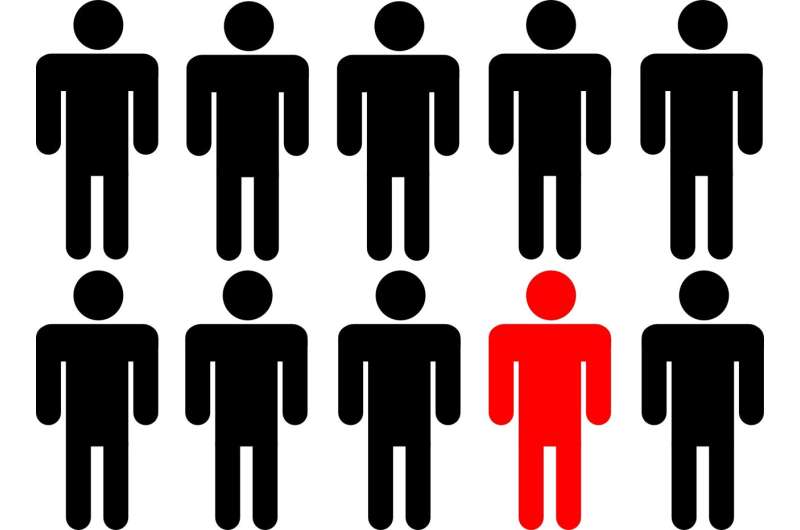This article has been reviewed according to Science X's editorial process and policies. Editors have highlighted the following attributes while ensuring the content's credibility:
fact-checked
peer-reviewed publication
trusted source
proofread
Understanding differences within nonconformity

Stand-out individuals often capture our attention, especially in the United States. According to a recent University of Georgia study, not all nonconformists are the same. Although on the surface, several "stand-out" individuals may look the same, they are likely different from one another in several important ways.
Across multiple studies, researchers at the University of Georgia have examined stereotypes about two types of nonconformists: mavericks and contrarians. Lead author and associate professor of psychology in the Franklin College of Arts and Sciences Brian Haas says that understanding how nonconformists are stereotyped can not only provide insight into how Americans perceive individuality, but also clarify how different types of stand out individuals are treated.
"When people are stereotyped in a box, whether it's a maverick or a contrarian, it's likely to come with a bunch of consequences," Haas said. "By researching this topic using a stereotyping approach, we get a good sense of what those consequences may be."
The United States seems to be a place where nonconformists capture a great deal of society's attention, Haas said. While Americans often celebrate individuality in general, this study shows that Americans tend to think more positively about mavericks than contrarians. The stereotypes likely have consequences in terms of social relationships and job prospects, Haas said.
In the first study, participants were asked to provide characteristics and potential jobs for "a person who finds their own way in life and is not influenced by what other people think or do" (a maverick) and "a person who really likes to be different than everybody else" (a contrarian).
Participants associated leadership roles such as CEO and entrepreneur with mavericks and more creative roles like musician and artist with contrarians. Additionally, mavericks were viewed as more agreeable and competent, and contrarians were seen as more social and neurotic.
"This has relevance into the type of people that others want to hire or have on their team. Do you want somebody who is independent in thought and doesn't think much about what everyone else is doing, or do you want somebody who is super creative in coming up with novel and different ideas?" Haas said, describing mavericks and contrarians, respectively.
In addition to creativity, contrarians were also thought to be rather high in sociability, Haas said, as it shows that some nonconformists must be very socially aware in order to actively avoid fitting in.
"If somebody really wants to be different, they need to first tune into what everybody's doing," Haas said. "And then they need to calculate how to do the opposite and get noticed doing so. You have to be really, really tuned into what everybody else is doing to develop behavior that's opposite to what everyone else is doing."
Moving forward, Haas hopes this research can act as a stepping stone in comparing conformity and nonconformity across cultures and countries.
"The strength of wanting to conform to others around you differs according to where on earth you are," Haas said. "In the United States, there seems to be a particularly high value associated with standing out from the crowd, and that's not necessarily the case in many other places in the world. So, a logical next step is to study what stereotypes about nonconformists are like in cultures other than the United States."
More information: Brian W. Haas et al, All You Nonconformists Are (Not) All Alike: Dissociable Social Stereotypes of Mavericks and Contrarians, Personality and Social Psychology Bulletin (2023). DOI: 10.1177/01461672231217630
Journal information: Personality and Social Psychology Bulletin
Provided by University of Georgia





















